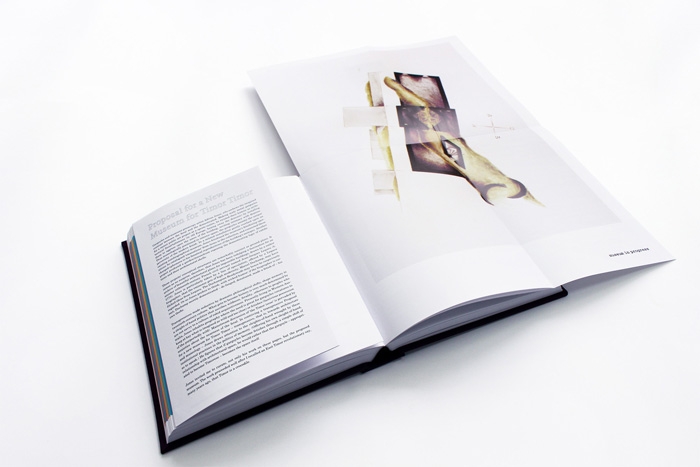It is almost impossible now to think of the Philippines in any way that might be independent of its current political strife. Even the attempt to do so screams naivety. Marian Pastor Roces is one art critic who has always asserted, since the dictatorial era of Ferdinand Marcos, that art and life at large are inseparable. Roces’s complex and relevant writing extends beyond the Culture (big C) of what many might assume is an insulated artworld. She has shaped the way the Philippines thinks about art and consequently enjoys cult status in the circles of Filipino art-criticism.
Gathering: Political Writing on Art and Culture is Roces’s first collection of essays, comprising 43 texts that document her career in critical writing in the Philippines. Significantly, this book is also the inaugural publication of a recent initiative by the Museum of Contemporary Art and Design, De La Salle-College of Saint Benilde, to produce monographic collections of the work of contemporary Filipino artists and writers. Gathering procures its title from a 1991 collaborative exhibition-text written with curator and critic Beth Jackson in which Roces reflects upon the show’s wider sociopolitical themes, which, she maintains, pervade the discursive art milieu. Appropriately, this anthology assembles a series of writings that reflect a multiplicity of critically rigorous and often provocative interventions into Philippine art and its byproducts. Roces organises these essays chronologically to contextualise their historical relevance.
She begins with ‘Old Photographs, Recuerdos Tristes’, a 1974 essay defining photographs not as mimetic representations but objects based on the subject’s way of seeing. Here she establishes that Filipinos have inherited their colonisers’ derogatory mindset of themselves, which in turn sets the tone for her persistent ‘emancipatory agenda’. With each text thereafter, Roces fiercely identifies various ideological hauntings from the past and criticises their complacent effects as part of her relentless desire for a better world. She lambastes art institutions such as the museum and the biennial in essays like ‘The CCP Art and Power Pas de Deux’ (1984) and ‘Nation, Comparison, and the Spectre of Art’ (2017) for their largely self-congratulatory and contradictory practice. In the former, Roces recognises that ‘outside is where most Filipinos have stayed’, whereas the Marcoses attempted to highlight Filipino artistic talent. Roces even turns her attention to otherwise sanctified figures like José Rizal and Roberto Chabet to condemn their unquestioning reception, declaring that Chabet’s ‘elusion permitted fascism’ and that he ‘lived inside that arcana; and did not and perhaps could not in truth respond to the political gravitas of Conceptual Art’.
Roces also critiques overly formalised and inaccessible artistic rhetoric in texts like ‘Words’ (1994), yet her voice feels esoteric at times, with frequent markings of gratuitous poetic prose. In her otherwise very engaging essay ‘The Absence’ (2014), for example, Roces heavily embellishes, spending too much time on inflated theatrics that muddle her salient analysis of the lofty solipsism of the announcement of the Philippines’s presence at the 2015 Venice Biennale (which came after an absence of 50 years). She likens the exhibition to a boxing match – perhaps subtly poking fun at the Filipino boxer-turned-politician Manny Pacquiao – ‘Dodging punches, ducking criticism, this Artful Dodger does get by without analytic brio. Slithering through the international art melees on the power of improv and lightning moves, s/he only cultivates the throw-away line, the quick jab, and deadpan attitude…’ The overzealous nature of her writing, however, is likely deliberate: ‘The point is not to be “objective”’, she writes in ‘Luna and Hidalgo: Vexed Modernity’ (2002). ‘On the contrary, anything short of a committed thesis on the part of any commentator is probably criminal in a country like the Philippines, so locked in deadly double-speak.’
With each sentence, Roces elicits rousing revolutionary sentiments in the reader that are particularly relevant to the country’s current troubled times. In Gathering’s very last essay, ‘Conceptual Art, Authoritarianism, 1970s, Asia’ (2018), the author includes a very brief epilogue, in which she begins: ‘Authoritarianism is on my mind because it is where I live, today’. She reminds the reader of the Philippines’s current political crisis that makes the timely publication of Gathering all the more relevant. Across Roces’s 40-plus years in criticism, her relentless commitment to change – whether in art, culture or politics – is exhilarating. Gathering refreshingly transcends any insipid ‘art for art’s sake’ arguments. Instead, art is the locus from which Roces vocalises the difficult opinions others are afraid to say. Society might be all the better for it should it decide to listen.
From the Winter 2019 issue of ArtReview Asia
